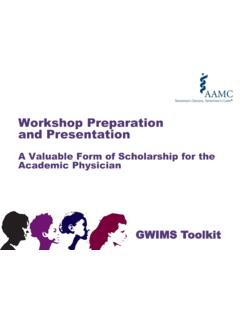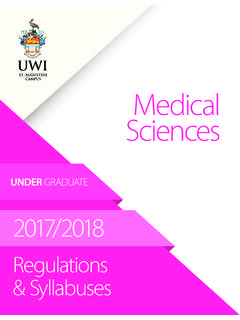Transcription of Mexico’s Response to COVID-19: A Case Study
1 mexico s Responseto covid -19 :A Case StudyMexico s Responseto covid -19 :A Case StudyCONTENT Abbreviations PrefaceCHAPTER 1 Introduction and EpidemiologyOrganization of the ReportThe Impact of the Pandemic in NumbersThe Bottom LineCHAPTER 2 The National EnvironmentEpidemics and Pandemics in Modern HistoryFeatures, Strengths, and Weaknesses of the health SystemHealth Status of the PopulationCHAPTER 3 Leadership and GovernanceProblems in the Emergency Response Model.
2 Discretionary Decision-Making, Political Subordination, and Lack of DeliberationDisregard for Scientific Evidence and DataDelayed, Undecisive Action and Lack of CoordinationCHAPTER 4 Communication and TrustStrengths of Public health Communication and TransparencyCommunication Failures: Politicization, Wrong Messaging, and Setting a Bad Example5681111343638404450535564687072 ChairJaime Sep lveda, MD, DSc, MPHE xecutive Director, Institute for Global health sciences , University of California, San Francisco. Haile T. Debas Distinguished Professor of Global Mariano S nchez-Talanquer, PhD (lead author)Academy Scholar, Harvard Academy for International and Area Studies, Harvard University.
3 Assistant Professor, Center for International Studies, El Colegio de M Gonz lez-Pier, PhD Global Fellow, Wilson Center mexico Institute, Washington, Jaime Sep lveda, MD, DSc, MPHE xecutive Director, Institute for Global health sciences , University of California, San Francisco. Haile T. Debas Distinguished Professor of Global a Abascal-Miguel, MD, MSDoctoral Student in Global health , Institute for Global health sciences , University of California, San Fieldhouse, MSDoctoral Student in Global health , Institute for Global health sciences , University of California, San del R o, MDDistinguished Professor of medicine , Division of Infectious Diseases, Emory University school of medicine and Executive Associate Dean at Grady Hospital.
4 Professor of Epidemiology and Global health , Rollins school of Public health , Emory University. Sarah Gallalee, MPH Doctoral Student in Global health , Institute for Global health sciences , University of California, San memebers of the research teamEnrique C rdenas S nchez, PhDProfessor, Universidad Iberoamericana Puebla. President, Executive Committee of Signos Vitales and Puebla Contra la Corrupci n y la Impunidad, Sekhri Feachem, MHAA ssociate Professor, Institute for Global health sciences , University of California, San Flores Abdo, BAIndependent Hatefi, MDAssociate Professor, Department of medicine , University of California, San Sanders, MD, MSTechnical Lead, Pandemic Response Initiative, Institute for Global health sciences , University of California, San Francisco.
5 Clinical Instructor, Lucile Packard Children s Hospital at Stanford Centers for Disease Control and PreventionCENETEC National Center of Technological Excellence in HeathENSANUT National Survey on health and NutritionGDP Gross Domestic ProductHCW health Care WorkersICU Intensive Care UnitIMSS Mexican Institute of Social SecurityInDRE National Laboratory for Epidemiological Diagnostic and ReferenceINSABI Institute of health Institute for WellbeingINSP National Public health InstituteINEGI National Institute of
6 Statistics and GeographyISSSTE Institute for Social Security and Services for State WorkersMORENA National Regeneration MovementNCD Non-Communicable DiseaseNGO Non-governmental OrganizationNIH National Institutes of HealthNPI Non-pharmaceutical InterventionsPAHO Pan American health OrganizationPPE Personal Protective EquipmentRT-PCR Reverse Transcription-Polymerase Chain ReactionSARS Severe Acute Respiratory SyndromeSINAVE National Epidemiological Surveillance SystemSISVER Epidemiological Surveillance System for Respiratory DiseasesSS Secretariat of HealthUS United StatesWHO World health OrganizationABBREVIATIONSCHAPTER 5 Public health ResponseTestingNPIs Related to Testing.
7 Isolation and QuarantineMasksLockdowns and Physical DistancingOther NPIsCHAPTER 6 Preparation of health System and Service DeliveryExpansion of Hospital CapacityAccess to Essential Medicines and Supplies and Equipment and Quality of CareCHAPTER 7 FinancingCHAPTER 8 VaccinesThe Magic of VaccinesCost of VaccinesGeopolitical Positioning of InfluenceVaccines Contracted and Vaccination Policies in MexicoInternational Collaboration (COVAX)Heterologous Vaccination and Single Dose VaccinationImmunological EquityVaccine HesitancyVaccine PoliticizationInternational ComparisonCHAPTER 9 Conclusions and Recommendations Acknowledgements788282848485889092949810 010010110110310310410410510610812067 One year ago, at the time of this writing, WHO officially declared covid -19 a pandemic, only a few weeks after declaring it a Public health Emergency of International Concern.
8 The year 2020 will surely be considered in history as the most calamitous one in health since the 1918 flu pandemic. It will also be remembered as having the worst economic crisis since the Great Depression. The social consequences of the pandemic will be felt for a long time to pandemic has affected everyone in the planet, directly or indirectly. It is estimated that over 10% of the global population has been infected so far. This average hides the fact that in many places in Europe, the US, Brazil and mexico this proportion could be much higher.
9 With over 10,000 deaths per week, covid is now the 3rd main cause of death globally; in mexico , it is currently the leading cause. Projections estimate that 4 million deaths due to covid -19 will have occurred worldwide by July of this year. This figure does not account for the excess mortality related to non- covid -19 cases that the pandemic has indirectly caused. But not all regions of the world have been similarly affected. Some countries have performed better than others. Understanding what elements made a difference and what lessons can be derived is the object of our case Study .
10 This report was commissioned by the WHO Independent Panel to the Institute for Global health sciences at UCSF at the beginning of December 2020. The mission of the Independent Panel is to provide an evidence-based path for the future, grounded in lessons of the present and the past to ensure countries and global institutions, including specifically WHO, effectively address health threats. Several faculty members of our Institute and partner institutions in mexico had been actively working on covid -19 since the early days of the pandemic, so it was possible to bring their multidisciplinary expertise into this evaluation.



